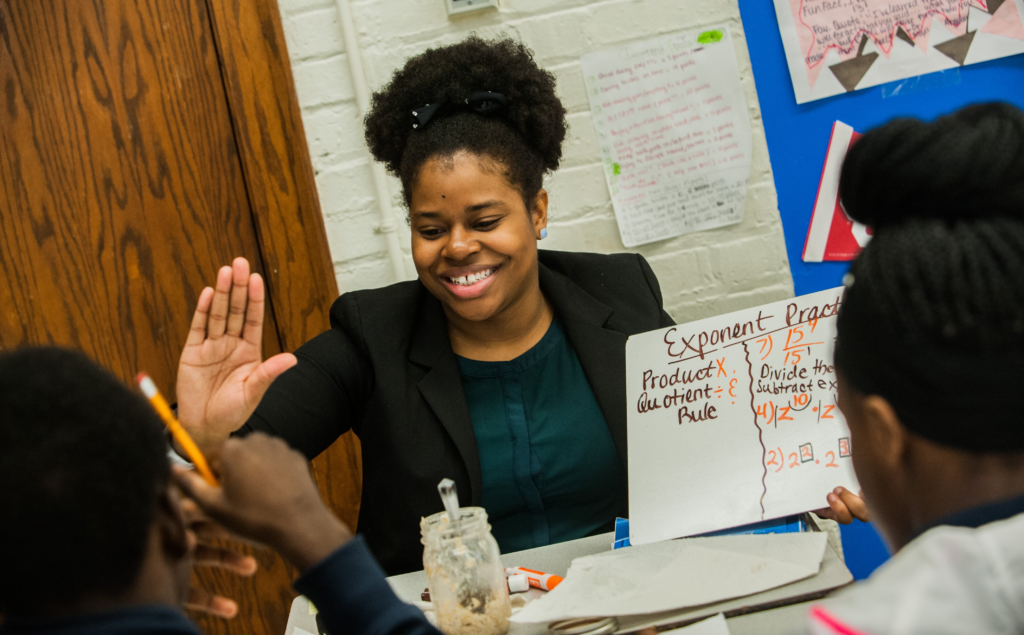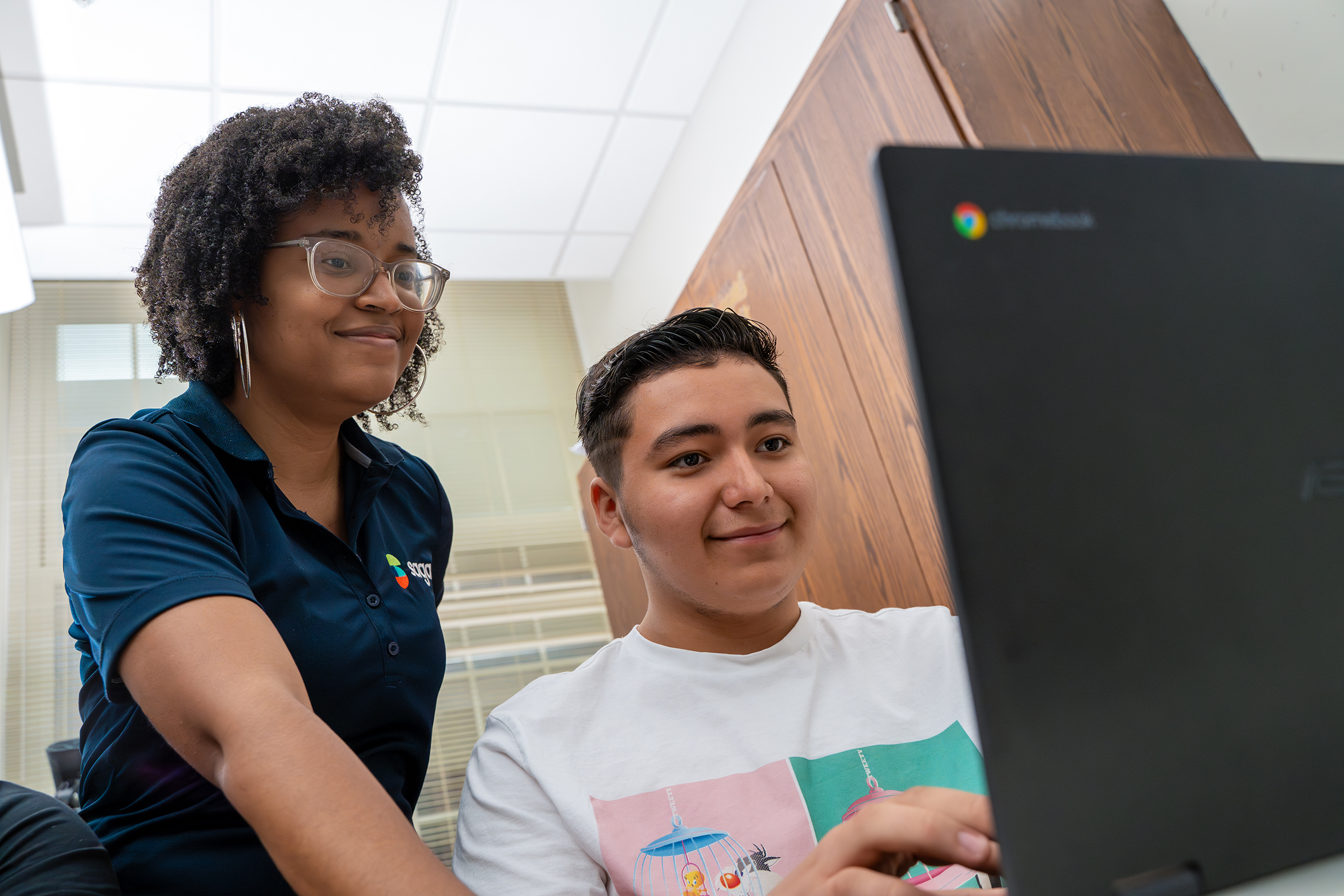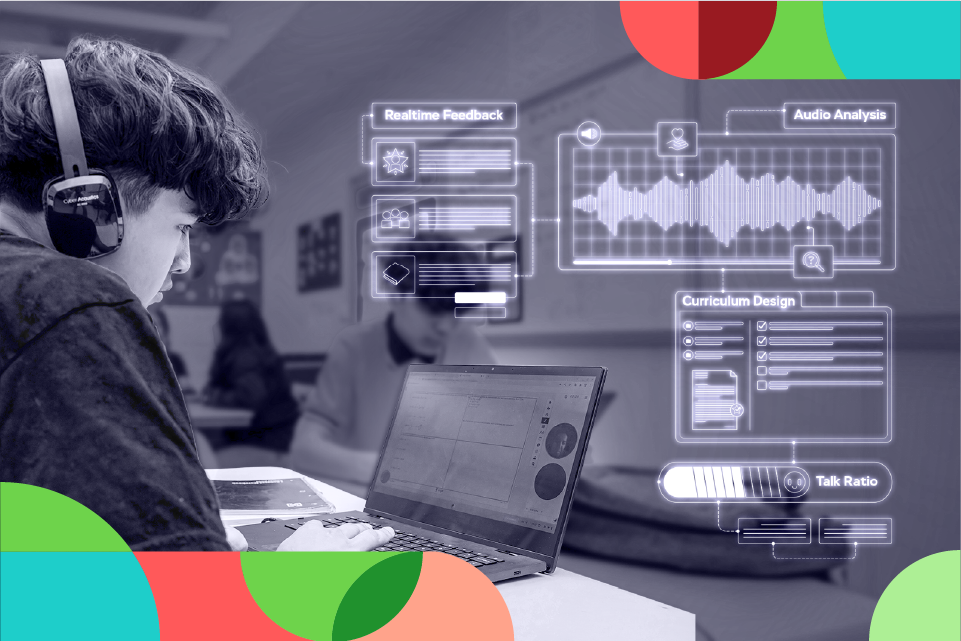Did you have an educator who really saw you and got to know you for who you are?
What was it like being in their class? How did they shape you as a person and as a student?
My guess is you had conversations about life outside of the classroom, the educator actively listened to you and they maybe even shared slivers of their own life with you.
When students feel unseen or overlooked by teachers, tutors, and paraprofessionals, a disconnect can begin to form between the student and the work before them. Positive relationships, however, can have a serious impact on academic success, can help form a sense of belonging to the learning community, and may even result in better teaching, too.
Relationship-building is essential but like many good things in life, it takes work. Establishing a meaningful relationship with students takes time. Once they’re established, nurturing those relationships over time requires patience and perseverance. But the benefits to both the educator and the student make all the effort worth it.

The role of a tutor is significantly different from that of a teacher but both play a part in strengthening student well-being, confidence, and their sense of belonging in school. For more on building tutor-student relationships, check out the Three principles to build great student-tutor relationships: Relationships, Rigor and Ratio.
In this blog post, we’ll look at five ways to create and nurture meaningful relationships with students.
Five Ways to Create Meaningful Relationships with Students
1. Get to Know the Whole Child
Hopefully, you have a teacher that comes to mind when you read the opening question. Students, like all of us, crave connection. They know it when they are treated as a project to fix, a problem to solve, or a cog in the wheel. On the flip side, when they are treated like people first and students second, they are well aware of it.
At the beginning of the relationship, do an interest survey to get to know what music, TV shows, apps, movies, extra-curricular activities, and hobbies your students enjoy. Finding small ways to connect is the building block to a strong, relational foundation in education. If you see that a student loves the same movie franchise as you or is learning to bake, ask a few follow-up questions before jumping into the content the next time you see them. In a few months, there may be a new season of their favorite show and you can ask if they have watched it yet and what they think about it.
When you’ve got an inventory of student interests to refer back to over time, you have a way to inject personal conversations at every stage of the school year.
2. Build Margin Into Your Day to Listen and Have Conversations
In order to get to know the whole child, you have to proactively build margin into your time with them to have personal conversations. If every period or session with the student is maxed out with academic content and you have to rush to get through everything, you may find yourself getting annoyed when things get off track.
If, on the other hand, you know you’ve built in a few minutes to listen to what’s on their mind (whether it comes up because the student brings it up or because you ask,) you’re more likely to welcome a quick side conversation about their birthday plans or the new shoes they got this weekend.
3. Incorporate the Student’s Voice Into the Work
When you know your students’ personal interests and hobbies, you’ve got a direct way to make the academic content more engaging.
- You could write simple math problems using their favorite musical artists.
- You could create physics problems with basketball for students who love to play.
- You could find texts that have characters that look like, sound like, and live lives similar to those of your students.
Meaningful relationships are rooted in being seen and known as we are. Strategically making students feel seen and known in the work they are doing not only showcases the relationship you’ve built with them but also engages the students academically.
4. Speak Positively Intentionally (And Discipline When Necessary)
Encouragement and affirmation can be seeds of confidence and self-assurance. As an educator, you see a side of the student that many in their life do not see. Because of that, affirming a job well done and shining a light on talents that may not showcase themselves in their everyday lives can be a crucial part of an educator’s work to nurture meaningful relationships. If a student shows progress on a certain topic, encourage them!
This also requires that you test out and get to know the best way that students like to be affirmed. Some will love repeated positive talk while others may like an occasional, “You did really well and I’m proud of your hard work.” Knowing the difference can be as simple as asking the student how they like to receive positive feedback.
Conversely, there will be times when students need to be disciplined or redirected. These don’t need to be dramatic episodes of raised voices. Especially in an established relationship, calmly and clearly communicating how the student is misbehaving and letting them know the consequence that will come should they continue misbehaving can be disarming for many students. If you’ve built into the student with positive feedback along the way, discipline and redirection aren’t as likely to have a lasting strain on the relationship.
5. Be You and Give Them a Glimpse of Your World
As an educator, it’s important to recognize that students aren’t your friends. But no matter how old they are, students can pick up on authenticity. Allowing your own personality, sense of humor, and interests to enter the conversation cast you as a person as opposed to a rigid authority figure (who maybe also sleeps at the school?!). Having authority doesn’t mean you cannot be yourself, crack an appropriate joke, or talk about your dog. Doing that may actually build up your authority over time.
Relationships and Academics Go Hand in Hand
Remember that every student is unique in how they encounter and interact with authority figures. Some students may need more time to trust you with details of their personal life, no matter how small or trivial. Others may overshare the first time you meet them! It’s important to see each student where they are and for who they are, and let that guide you in creating a meaningful relationship with them.
The end goal for every student is the same: to be known and to achieve their fullest potential!
Are you ready to implement relationships, rigor, and ratio into your tutoring program? Check out our self-paced and evidence-based training program, Saga Coach, to help your tutors and students thrive.



